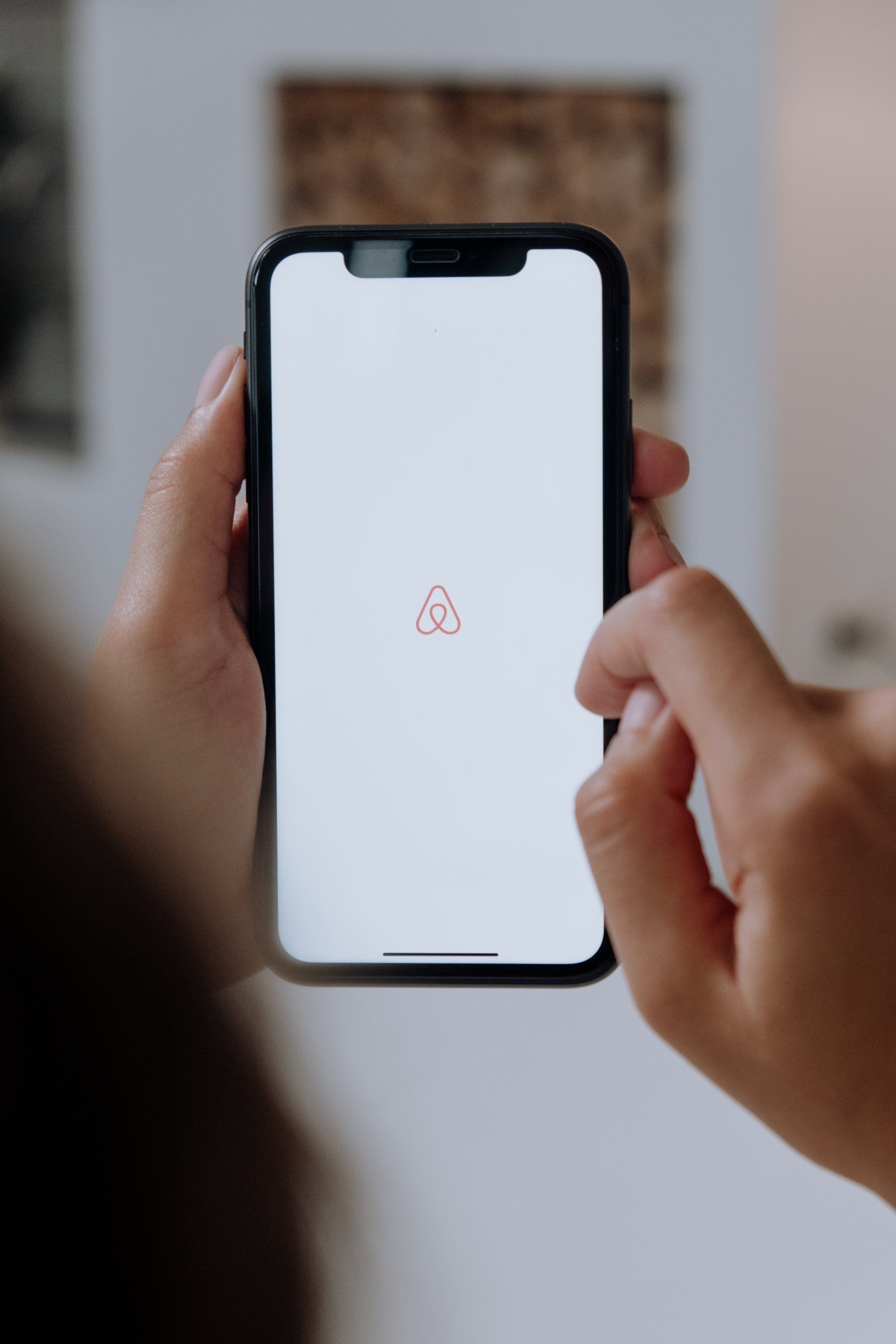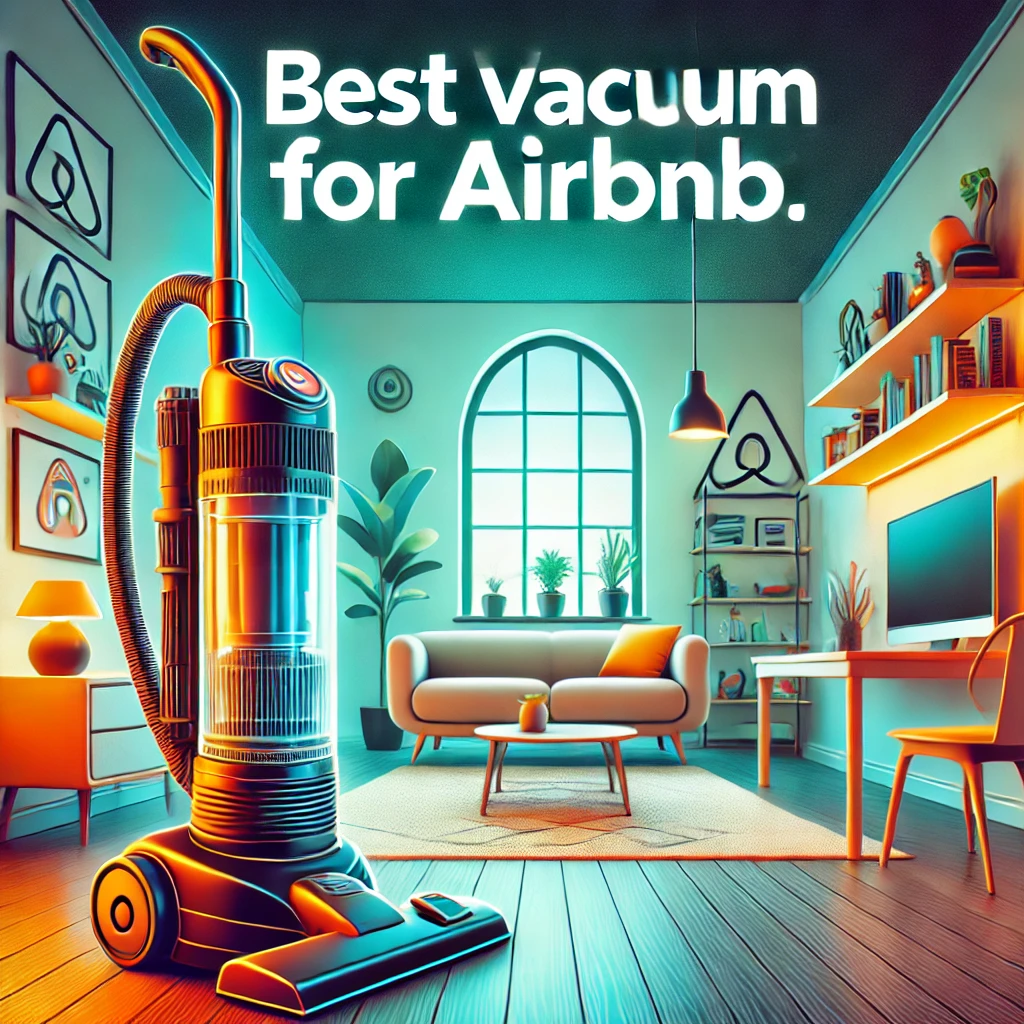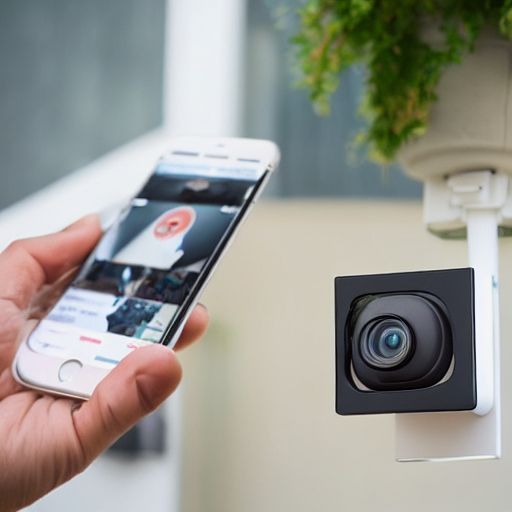Remote Airbnb Management
-
Remote Airbnb Management Software
ButtonRemote Airbnb Management Photo of Host Managing via Mobile App
Introduction to Remote Airbnb Management
Remote Airbnb management has become increasingly popular in the STR industry due to the advent of Guesty and Uplisting (short-term rental software automation tools). As a property owner, it's crucial to optimize your property's performance, offer excellent customer service, and keep up with market trends. This ultimate guide will cover everything you need to know to streamline your remote Airbnb management process and grow your business. We'll discuss the importance of using technology, best practices, and tips for success.
Table of Contents
- Why Remote Airbnb Management Matters
- Essential Tools for Remote Management
- Best Practices for Effective Communication
- Maximizing Revenue through Pricing and Promotion Strategies
- Automating and Outsourcing Tasks
- Handling Guest Issues and Emergencies
- Maintaining Property Quality and Cleanliness
- Staying Updated with Airbnb Regulations
- Conclusion
1. Why Remote Airbnb Management Matters
Managing a short-term rental property remotely offers several benefits, including:
- Scalability: Expand your portfolio without being restricted by geographical limitations.
- Flexibility: Work from anywhere, allowing you to maintain work-life balance and save time.
- Cost-effectiveness: Save on overhead costs and invest in growth strategies.
- Efficiency: Leverage technology and automation to improve operations.
2. Essential Tools for Remote Management
Essential tools for remote Airbnb management can significantly enhance your property's performance and guest experience. Here are some key tools to consider:
- Property Management Software (PMS): Choose a PMS with features like booking management, calendar syncing, messaging, and reporting. This software will help you manage reservations, communicate with guests, and monitor your property's performance.
- Channel Manager: A channel manager allows you to manage listings across multiple booking platforms, such as Airbnb, Booking.com, and VRBO. This tool helps you synchronize your calendar and pricing, avoid double bookings, and increase your property's visibility.
- Smart Locks and Keyless Entry: These devices provide secure and convenient access to your property without the need for physical keys. Guests can check-in and check-out seamlessly, and you can monitor and control access remotely.
- Security Cameras: Installing security cameras on your property's exterior helps you monitor safety and compliance with local regulations. It also provides added security for both guests and the property itself.
- Noise Monitoring Devices: These devices ensure guests adhere to noise restrictions and help maintain good relationships with neighbors. Noise monitors can detect loud noises and send notifications, allowing you to take necessary action.
- Wi-Fi Thermostats: Remotely control and monitor your property's temperature using Wi-Fi thermostats. This not only saves energy but also enhances guest comfort by maintaining an optimal temperature.
- Virtual Concierge: Offer personalized guest experiences and support through digital devices or mobile apps. A virtual concierge can provide recommendations, answer questions, and assist guests with various requests, improving their overall experience.
a. Property Management Software (PMS)
Choose a PMS with features like booking management, calendar syncing, messaging, and reporting.
Property Management Software (PMS) is a comprehensive solution designed to help property owners, managers, and operators efficiently manage their short-term rental properties. A PMS can streamline various aspects of property management, from booking and reservation management to guest communication and reporting. Key features of property management software typically include:
- Booking management: A PMS allows you to manage reservations, cancellations, and modifications across multiple platforms, keeping all booking information organized and up-to-date.
- Calendar syncing: Synchronize your property's calendar across different booking platforms, such as Airbnb, Booking.com, and VRBO. This feature helps prevent double bookings and ensures that your availability information is always accurate.
- Messaging and guest communication: Centralize guest communication within the PMS, making it easier to manage messages from different platforms. Some PMS also offer automated messaging for standard responses and reminders, improving efficiency and guest satisfaction.
- Reporting and analytics: Monitor your property's performance through customizable reports and analytics. A PMS can provide insights on key metrics, such as occupancy rate, average nightly rate, and revenue, helping you make data-driven decisions for your business.
- Pricing and promotion management: Set and manage dynamic pricing strategies based on market trends, demand, and competition. A PMS can also help you create and manage promotions and discounts to attract more bookings.
- Integration with other tools: Many PMS solutions offer integration with other essential tools like channel managers, payment gateways, and smart home devices, creating a seamless property management experience.
- Task management and team collaboration: Assign tasks to your team members, such as cleaning and maintenance, and monitor their progress within the software. This feature helps ensure efficient operations and a high standard of property quality.
Choosing the right property management software can significantly streamline your remote Airbnb management, ultimately enhancing the guest experience and optimizing your property's performance.
b. Channel Manager
Manage listings across multiple booking platforms with ease and avoid double bookings.
Channel managers are specialized software solutions designed to help property owners and managers efficiently manage and distribute their listings across multiple online booking platforms, such as Airbnb, Booking.com, VRBO, and others. By using a channel manager, you can simplify the process of updating your property's information, pricing, and availability across various channels. Key features and benefits of channel managers include:
- Centralized management: Channel managers allow you to manage all your listings from a single dashboard, reducing the need to log in to multiple platforms individually. This centralization streamlines the management process and saves time.
- Calendar synchronization: A channel manager synchronizes your property's calendar across all connected booking platforms, ensuring that availability and booking information are always accurate and up-to-date. This synchronization helps prevent double bookings and overbooking.
- Real-time updates: Channel managers automatically update your property's information, pricing, and availability in real-time across all platforms. This feature ensures that guests always see the most current information when searching for accommodations.
- Pricing and promotion management: Set and manage dynamic pricing strategies and promotions from the channel manager, which then updates your rates across all connected platforms. This feature allows you to optimize revenue based on market trends, demand, and competition.
- Reporting and analytics: Some channel managers provide reporting and analytics tools to help you track your property's performance across different platforms. These insights can help you make data-driven decisions to optimize your listings and maximize revenue.
- Analyzing Airbnb market data is crucial for understanding market trends, optimizing your listing, and maximizing revenue. There are several tools available to help you gather and analyze this data. Some popular options include:
- AirDNA: AirDNA provides comprehensive short-term rental market data, including occupancy rates, average daily rates, and revenue performance. It offers insights on market trends, seasonality, and competitor performance. With its MarketMinder tool, you can analyze data at various geographical levels, from cities to specific neighborhoods.
- Mashvisor: Mashvisor is a real estate investment tool that offers data on Airbnb and traditional rental markets. It provides key performance metrics, such as average occupancy rates, rental income, and return on investment, and allows you to compare properties and neighborhoods.
- Beyond Pricing: Beyond Pricing is a dynamic pricing tool that helps you optimize your listing's pricing based on market data. It analyzes real-time data, such as demand, local events, and seasonality, to suggest the best nightly rates for your property. While its primary focus is on pricing, the insights it provides can help you understand market trends and your listing's performance.
- PriceLabs: PriceLabs is another dynamic pricing tool that offers market data analysis, enabling you to make informed pricing decisions. It uses data on local events, seasonality, and booking trends to provide pricing recommendations and revenue projections.
- Inside Airbnb: Inside Airbnb is a free, open-source tool that offers data on Airbnb listings in various cities worldwide. It provides insights on the number of listings, property types, and average prices, which can be useful for understanding your local market and competition.
- Your Porter App: Your Porter App is a property management tool that also provides market insights and pricing suggestions based on market data. It helps you analyze your listing's performance and adjust pricing to optimize revenue.
- By using one or more of these tools, you can gain valuable insights into your local Airbnb market, allowing you to make data-driven decisions to improve your listing's performance and maximize revenue. Keep in mind that each tool may have unique features and pricing structures, so it's essential to choose the one that best fits your needs and budget.
- Integration with other tools: Channel managers often integrate with property management software (PMS), payment gateways, and other tools, creating a seamless experience for managing your short-term rental business.
By using a channel manager, you can effectively increase your property's visibility and reach across multiple platforms, streamline the management process, and optimize your occupancy and revenue.
c. Smart Locks and Keyless Entry
Provide secure and convenient access to your property without physical keys. Smart locks and keyless entry systems are modern, secure solutions that provide access to your property without the need for traditional physical keys. These systems offer several benefits for remote Airbnb management:
- Convenience: Guests can check-in and check-out seamlessly using personalized access codes, smartphone apps, or key cards, without having to coordinate a key exchange.
- Security: You can generate unique access codes or digital keys for each guest, enhancing security and reducing the risk of unauthorized access. Some systems also track entry and exit times for added security.
- Remote management: As a property owner or manager, you can monitor and control access to your property remotely, allowing you to manage multiple properties efficiently.
- Integration: Many smart lock systems integrate with property management software (PMS) and other tools, streamlining the guest check-in process and automating tasks like sending access codes to guests upon booking confirmation.
d. Security Cameras
Monitor your property's exterior for safety and compliance with local regulations.
e. Noise Monitoring Devices
Noise monitoring devices help ensure guests adhere to noise restrictions and maintain good relationships with neighbors. These devices:
- Detect excessive noise levels: Noise monitors can identify loud noises that might disturb neighbors, such as loud music or parties.
- Send notifications: If the noise level exceeds a predetermined threshold, the device sends notifications to the property owner or manager, allowing you to address the issue promptly.
- Protect guest privacy: Noise monitoring devices typically measure decibel levels without recording actual conversations, ensuring that guest privacy is maintained.
f. Wi-Fi Thermostats
Wi-Fi-based thermostats, also known as smart thermostats, are devices that connect to the internet and allow for remote control and monitoring of a property's temperature settings. They offer several benefits for property owners and managers, particularly in the context of remote Airbnb management:
- Energy savings: By remotely monitoring and regulating the temperature, you can optimize energy consumption and save on energy costs, especially when your property is vacant or between guest stays. Smart thermostats can also learn from your preferences and usage patterns to automatically adjust settings for better energy efficiency.
- Guest comfort: You can ensure ideal temperature settings for the comfort of your guests, creating a more pleasant and welcoming experience for them. With the ability to remotely adjust settings, you can address any temperature-related concerns or requests from guests promptly and efficiently.
- Integration: Some Wi-Fi thermostats can integrate with smart home devices, such as smart locks, lights, or voice assistants, creating a seamless smart home experience for your guests. Additionally, they may integrate with property management software, streamlining the remote Airbnb management process even further by centralizing control and monitoring of various property aspects.
- Alerts and notifications: Many Wi-Fi thermostats can send alerts or notifications to your smartphone or other devices if there are significant temperature fluctuations or if the HVAC system requires maintenance. This feature allows you to address potential issues proactively and maintain a comfortable environment for your guests.
In summary, Wi-Fi-based thermostats provide property owners and managers with better control over energy consumption, enhance guest comfort, and can integrate with other smart devices or property management software, making them a valuable addition to any remote Airbnb management strategy.
Wi-Fi thermostats are internet-connected devices that allow you to remotely control and monitor your property's temperature. Benefits of Wi-Fi thermostats include:
- Energy savings: By monitoring and adjusting the temperature remotely, you can save on energy costs, particularly when your property is unoccupied.
- Guest comfort: You can ensure optimal temperature settings for guest comfort, creating a more pleasant experience for your guests.
- Integration: Some Wi-Fi thermostats can integrate with smart home devices or property management software, further streamlining your remote Airbnb management process.
g. Virtual Concierge
A virtual concierge is a digital service or mobile app that provides personalized guest experiences and support. Key features of virtual concierges include:
- Recommendations: Offer local recommendations, such as restaurants, attractions, and transportation options.
- Guest support: Answer guest questions and assist with various requests, such as booking tours or ordering food delivery.
- Integration: Virtual concierges can often integrate with other smart devices, like smart TVs or voice assistants, enhancing the guest experience.
By implementing smart locks, keyless entry, noise monitoring devices, Wi-Fi thermostats, and virtual concierges, you can streamline your remote Airbnb management, improve guest satisfaction, and optimize your property's performance.
3. Best Practices for Effective Communication
Effective communication is crucial for remote Airbnb management. Follow these tips:
- Respond promptly to inquiries and booking requests.
- Provide clear and concise instructions for check-in, check-out, and house rules.
- Personalize guest communication and use a friendly tone.
- Use automated messaging for common queries and reminders.
- Request feedback from guests to improve your service.
4. Maximizing Revenue through Pricing and Promotion Strategies
Adopt dynamic pricing strategies and promotions to maximize your revenue:
- Analyze market trends, demand, and competition to set competitive rates.
- Adjust pricing based on seasonality, local events, and booking lead times.
- Offer promotions and discounts for longer stays or off-peak periods.
- Optimize your listing with professional photos, clear descriptions, and positive reviews.
5. Automating and Outsourcing Tasks
Streamline your operations by automating repetitive tasks and outsourcing specific duties:
- Automate guest messaging, calendar syncing, and invoicing with PMS and other tools.
- Outsource cleaning, maintenance, and guest support to local service providers or property managers.
- Collaborate with a virtual assistant for administrative tasks and guest communication.
6. Handling Guest Issues and Emergencies
Prepare for unexpected situations by:
- Creating a comprehensive guide with contact information for emergencies and common issues.
- Maintaining a network of local service providers for prompt assistance.
- Implementing a backup plan for power outages or equipment malfunctions.
- Providing clear guidelines for guests to follow in case of an emergency.
7. Maintaining Property Quality and Cleanliness
Ensure a high standard of property quality and cleanliness by:
- Establishing a thorough cleaning and disinfection protocol for your cleaning team.
- Conducting regular property inspections, either personally or through a local contact.
- Investing in quality furnishings, appliances, and amenities.
- Addressing maintenance issues promptly to minimize guest inconvenience.
8. Staying Updated with Airbnb Regulations
Keep up with changing regulations and requirements:
- Monitor local laws and regulations regarding short-term rentals.
- Ensure compliance with tax requirements, insurance, and permits.
- Stay informed about Airbnb's policies and updates.
- Join industry forums and groups to learn from other hosts and share experiences.
As an Airbnb host or property manager, it's essential to stay informed about the regulations and policies that affect your short-term rental business. These regulations may vary by country, state, or city, and can impact various aspects of your operations, such as taxes, zoning, licensing, and safety. Here are some tips on how to stay updated with Airbnb regulations and ensure compliance:</p>
- Monitor local legislation: Regularly check for updates from local authorities, such as the city council, zoning board, or other relevant agencies, as regulations can change over time. Staying informed about these changes will help you adapt your business practices accordingly.
- Join host communities: Participate in online forums, social media groups, or local meetups dedicated to Airbnb hosts and property managers. These communities often share news, updates, and experiences related to short-term rental regulations and can be valuable sources of information and support.
- Engage with industry associations: Some regions have short-term rental or vacation rental industry associations that advocate for their members' interests and provide resources and updates on regulatory changes. Joining these associations can help you stay informed and be part of a collective voice representing the industry.
- Consult with professionals: Seek advice from professionals such as attorneys, accountants, or property management consultants who specialize in short-term rentals. They can provide guidance on navigating complex regulations and ensuring your business complies with all relevant laws.
- Utilize Airbnb resources: Airbnb itself offers resources, such as the Airbnb Resource Center or the Help Center, where you can find information about regulations, policies, and best practices. Keep an eye on any updates or announcements from Airbnb regarding changes to their policies or new features that may affect your listings.
- Be proactive with compliance: Regularly review and update your listing information, safety features, and property documentation to ensure compliance with all regulations. This may include acquiring the necessary permits or licenses, remitting occupancy taxes, adhering to zoning rules, and following safety guidelines.
By staying updated with Airbnb regulations and maintaining compliance, you can minimize the risk of penalties, fines, or even the suspension of your listings, while ensuring a safe and legal environment for your guests.
9. Conclusion
Remote Airbnb management can be a rewarding and profitable venture if you leverage technology, implement best practices, and continuously improve your operations. Remote Airbnb management is a critical aspect of the modern short-term rental industry. By leveraging technology and implementing best practices, property owners can optimize their listings, streamline operations, and ultimately grow their businesses. Embracing essential tools such as property management software, channel managers, smart locks, and Wi-Fi thermostats, as well as staying up-to-date with local regulations, enables hosts to manage their properties efficiently and effectively from anywhere in the world. Effective communication, dynamic pricing strategies, and task automation all contribute to an enhanced guest experience and increased revenue. As the short-term rental market continues to evolve, staying informed about industry trends and adopting innovative solutions will be crucial for staying competitive and achieving long-term success in remote Airbnb management.

The Fastest Growing Vacation Rental Company
Increase NOI of your rental asset through its' highest-and-best-use with STR utilization by Soda.
SODA STAYS
Providing premier Airbnb property management services nationwide.
📞 Contact Us:
- Dayton: (937) 600-3909
- Houston: (713) 588-1188
USEFUL LINKS
STAY INFORMED
All Rights Reserved | Soda LLC | Privacy Policy










